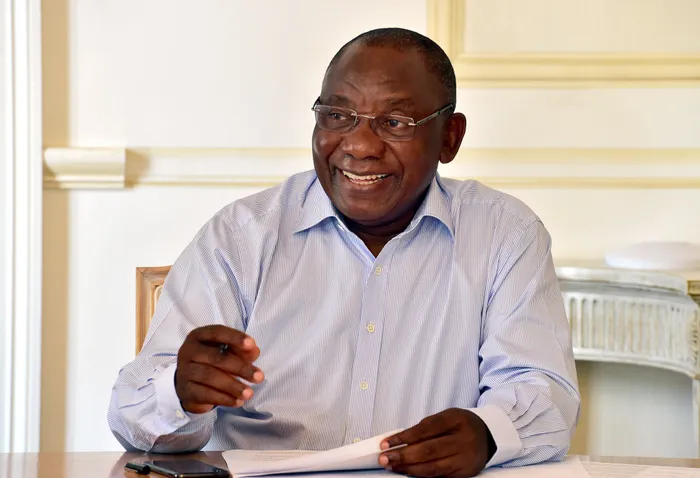Gender-based violence: President Ramaphosa signs victim-centred law into place

President Cyril Ramaphosa has signed into law legislation that is victim-centred. Picture: Supplied
Pretoria - South Africa has one of the highest gender-based violence and femicide (GBVF) rates in the world; it has also been widely reported it is one of the most violent countries.
And so, to strengthen the country’s efforts in fighting gender-based violence, President Cyril Ramaphosa has signed into law legislation that is victim-centred.
This as civil society and non-profit organisations who are committed to fighting the scourge of GBVF have, for many years, called on the government to sign into law legislation that will send a message to perpetrators while also protecting victims.
On Friday, Ramaphosa assented to, among others, the Criminal Law (Sexual Offences and Related Matters) Amendment Act Amendment Bill. The legislation’s prime goal is to improve the country’s prevention of sex crimes, particularly of paedophilia. It also expands the ambit in dealing with incest and introduces a new offence of sexual intimidation.
He also approved the Criminal and Related Matters Amendment Bill, allowing legislation that tightens bail and minimum sentencing provisions in the context of gender-based violence.
The law also sees the Domestic Violence Amendment Bill, which amends the Domestic Violence Act 116 of 1998 to address practical challenges, gaps and anomalies which have manifested since the act came into operation in December 1999. It also introduces online applications for protection orders against acts of domestic violence and imposes obligations on functionaries in the departments of Health and Social Development to provide certain services to victims of domestic violence.
According to the Presidency, the enacted legislation was a deliverable from the National Strategic Plan of Gender-based Violence and Femicide, which was called for at the November 2018 Presidential Summit against GBVF.
Ramaphosa said the enactment of legislation that protects victims of abuse and makes it more difficult for perpetrators to escape justice was a major step forward in the country's efforts against GBVF, and placed the rights and needs of victims at the centre of all interventions.
“This legislation demonstrates democracy at work. Civil society’s demands from the gates of Parliament were heard and listened to, and gave rise to our nation reaching a point where the demands of citizens are now cast in our law,” he said.
Non-profit organisation Action Society said South Africa’s GBV statistics are equal to a country being at war.
“Every day three children and eight women are murdered, and 250 women are raped. It is time to stand up and say enough. Enough excuses, enough inaction and enough lip service.”
When presenting the 2021/2022 second quarter crime statistics released by the SAPS, Police Minister Bheki Cele said to combat gender-based-violence, the police were in the process of establishing GBV desks in all police stations in the country to solemnly focus on GBV cases.
“To date, 134 such desks are in operation … The majority of our stations have victim-friendly facilities,” Cele said.
The statistics revealed that 897 women were killed during this period, up from the previous year’s 833 cases, a 7.7% increase, and that there was a 31.7% increase in the number of children murdered compared to the same period in the year before.
Child-killing cases rose from 218 to 287. The number of cases of rape rose by 634 to 9 556, an increase of 7.1% compared to the same period in the previous year.
Pretoria News